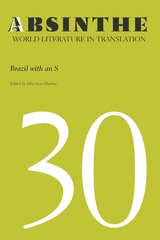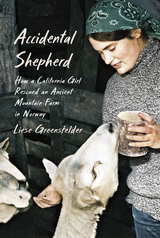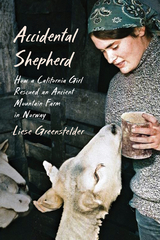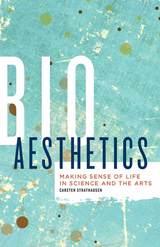
In recent years, bioaesthetics has used the latest discoveries in evolutionary studies and neuroscience to provide new ways of looking at art and aesthetics. Carsten Strathausen’s remarkable exploration of this emerging field is the first comprehensive account of its ideas, as well as a timely critique of its limitations.
Strathausen familiarizes readers with the basics of bioaesthetics, grounding them in its philosophical underpinnings while articulating its key components. Importantly, he delves into the longstanding problem of the “two cultures” that separate the arts and the sciences. Seeking to make bioaesthetics a more robust way of thinking, Strathausen then critiques it for failing to account for science’s historical and cultural assumptions. At its worst, he says, biologism reduces artworks to mere automatons that rubber-stamp pre-established scientific truths.
Written with a sensitive understanding of science’s strengths, and willing to refute its best arguments, Bioaesthetics helps readers separate the sensible from the specious. At a time when humanities departments are shrinking—and when STEM education is on the rise—Bioaesthetics makes vital points about the limitations of science, while lodging a robust defense of the importance of the humanities.

The war between Eritrea and Ethiopia, which began in May 1998, took the world by surprise. During the war, both sides mobilized huge forces along their common borders and spent several hundred million dollars on military equipment. Outside observers found it difficult to evaluate the highly polarized official statements and proclamations issued by the two governments in conflict.
Brothers at War presents important, contextual aspects to explain the growing discord between the two formerly friendly governments. It looks at the historical relations between the two countries since the late nineteenth century, the historical border issues from local perspectives, and the complicated relations between the former liberation fronts that subsequently formed the current governments of the two countries.

Cultural Revolution Culture, often denigrated as nothing but propaganda, was liked not only in its heyday but continues to be enjoyed today. A Continuous Revolution sets out to explain its legacy. By considering Cultural Revolution propaganda art—music, stage works, prints and posters, comics, and literature—from the point of view of its longue durée, Barbara Mittler suggests it was able to build on a tradition of earlier art works, and this allowed for its sedimentation in cultural memory and its proliferation in contemporary China.
Taking the aesthetic experience of the Cultural Revolution (1966–1976) as her base, Mittler juxtaposes close readings and analyses of cultural products from the period with impressions given in a series of personal interviews conducted in the early 2000s with Chinese from diverse class and generational backgrounds. By including much testimony from these original voices, Mittler illustrates the extremely multifaceted and contradictory nature of the Cultural Revolution, both in terms of artistic production and of its cultural experience.

Why do interiors of houses mimic nature—the wallpapers and curtains, flowers in vases, a vaporizer in the bathroom? Why do we so often connect our childhoods with gardens? Why has the myth of a lost Eden been so ubiquitous and so formative? The Green Fuse: Essays in Making Sense of Gardens explores our deep-rooted impulses to create gardens, examining them through the lenses of history, religion, nostalgia, and myth. It connects gardens with the other arts—painting, music, literature, and theater—and contemplates their intellectual and philosophical significance. Blending lyrical reflections with research, The Green Fuse offers an unusually wide-ranging and thoughtful perspective on gardens and why we make them. It will be ideal for all readers interested in gardening and its cultural implications.
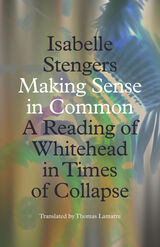
A leading philosopher seeks to recover “common sense” as a meeting place to reconcile science and philosophy
With her previous books on Alfred North Whitehead, Isabelle Stengers not only secured a reputation as one of the premier philosophers of our times but also inspired a rethinking of critical theory, political thought, and radical philosophy across a range of disciplines. Here, Stengers unveils what might well be seen as her definitive reading of Whitehead.
Making Sense in Common will be greeted eagerly by the growing group of scholars who use Stengers’s work on Whitehead as a model for how to think with conceptual precision through diverse domains of inquiry: environmentalism and ecology, animal studies, media and technology studies, the history and philosophy of science, feminism, and capitalism. On the other hand, the significance of this new book extends beyond Whitehead. Instead, it lies in Stengers’s recovery of the idea of “common sense” as a meeting place—a commons—where opposed ideas of science and humanistic inquiry can engage one another and help to move society forward. Her reconciliation of science and philosophy is especially urgent today—when climate disaster looms all around us, when the values of what we thought of as civilization and modernity are discredited, and when expertise of any kind is under attack.
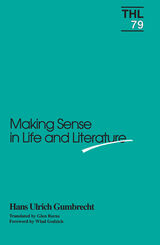
“The translation of these essays by Gumbrecht on literary theory and history marks the appearance in English of one of Europe’s most learned, productive, and inventive scholars. Their range is extraordinary. They show that Gumbrecht is not only a sophisticated theorist and historian of literature, but a master practitioner of cultural studies.” --Hayden White, University of California, Santa Cruz

Advance directives—such as living wills and health care proxies—are documents intended to declare and preserve the health care choices of patients if they become unable to make their own decisions. This book provides a comprehensive overview of advance directives and clear, practical directions for writing and interpreting them.
Nancy M.P. King provides a legal, philosophical, and historical analysis of the moral and legal force of advance directives. She explains the types and models of advance directives currently in use and offers guidelines for individuals seeking to write, read, and use directives to promote individuals' health care choices within the laws of their own states.
King emphasizes that advance directives are not orders given by patients to their doctors; instead, they are documents that invite conversation between doctors and patients about health care decisions of great importance. The purpose of advance directives is to support patients' health care choices, and the book promotes a thoughtful use of advance directives that is best calculated to achieve that purpose, whatever form individual advance directives may take.
This new edition has been updated to reflect the many changes in advance directive statutes since 1991, including expanded discussions of health care proxy statutes, the impact of the Patient Self-Determination Act and the Supreme Court's Cruzan decision. King also has extended her analysis of the implications for advance directives of managed care, resource allocation, resource scarcity, and the debate over futile treatment at the end of life.
Making Sense of Advance Directives is a valuable handbook for patients, health care providers and administrators, patient counselors, lawyers, policymakers, and any individual interested in advance directives.
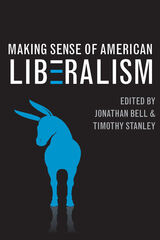
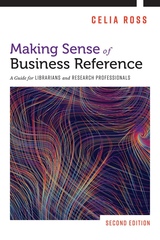
“It reads as if you have an expert coach in business reference helping you each step of the way." That’s how Academic BRASS summarized the first edition of this unique, unparalleled resource authored by Ross, a past winner of the Gale Cengage Learning Award for Excellence in Business Librarianship. Now she’s revised and updated it to tackle even more “bizref” headscratchers related to investment and finance, consumer behavior and statistics, company, and industry research. In addition to general reference strategies in each chapter that give you the lay of the land, inside you’ll find
- overviews of more than fifty databases for articles, company and industry, directories, consumer, international, or raw data;
- 33 real-life "Stumper" questions, all new for this edition, drawn from librarians in the field;
- why asking “who cares about this kind of question” reveals potential sources;
- techniques for applying reference interview techniques to business questions;
- advice on where to find the numbers for answering finance questions;
- expanded coverage of venture capital research and business information literacy;
- “Start Making Sense” suggestions for further skill-building; and
- questions to consider when building a bizref collection.
This is the guide to keep at your side when serving business students, job-seekers, investors, or entrepreneurs in your library.


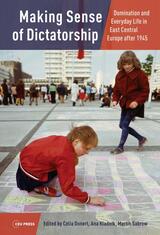
How did political power function in the communist regimes of East Central Europe after 1945? Making Sense of Dictatorship addresses this question with a particular focus on the acquiescent behavior of the majority of the population until, at the end of the 1980s, their rejection of state socialism and its authoritarian world.
The authors refer to the concept of Sinnwelt, the way in which groups and individuals made sense of the world around them. The essays focus on the dynamics of everyday life and the extent to which the relationship between citizens and the state was collaborative or antagonistic. Each chapter addresses a different aspect of life in this period, including modernization, consumption and leisure, and the everyday experiences of “ordinary people,” single mothers, or those adopting alternative lifestyles.
Empirically rich and conceptually original, the essays in this volume suggest new ways to understand how people make sense of everyday life under dictatorial regimes.
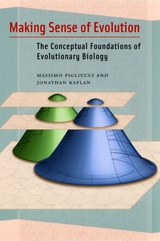
Making Sense of Evolution explores contemporary evolutionary biology, focusing on the elements of theories—selection, adaptation, and species—that are complex and open to multiple possible interpretations, many of which are incompatible with one another and with other accepted practices in the discipline. Particular experimental methods, for example, may demand one understanding of “selection,” while the application of the same concept to another area of evolutionary biology could necessitate a very different definition.
Spotlighting these conceptual difficulties and presenting alternate theoretical interpretations that alleviate this incompatibility, Massimo Pigliucci and Jonathan Kaplan intertwine scientific and philosophical analysis to produce a coherent picture of evolutionary biology. Innovative and controversial, Making Sense of Evolution encourages further development of the Modern Synthesis and outlines what might be necessary for the continued refinement of this evolving field.
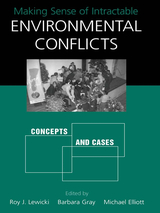
Despite a vast amount of effort and expertise devoted to them, many environmental conflicts have remained mired in controversy, stubbornly defying resolution. Why can some environmental problems be resolved in one locale but remain contentious in another, often carrying on for decades? What is it about certain issues or the people involved that make a conflict seemingly insoluble.
Making Sense of Intractable Environmental Conflicts addresses those and related questions, examining what researchers and experts in the field characterize as "intractable" disputes—intense disputes that persist over long periods of time and cannot be resolved through consensus-building efforts or by administrative, legal, or political means. The approach focuses on the "frames" parties use to define and enact the dispute—the lenses through which they interpret and understand the conflict and critical conflict dynamics. Through analysis of interviews, news media coverage, meeting transcripts, and archival data, the contributors to the book:
- examine the concepts of frames, framing, and reframing, and the role that framing plays in conflicts
- outline the essential characteristics of intractability and its major causes
- offer case studies of eight intractable environmental conflicts
- present a rich body of original interview material from affected parties
- set forth recommendations for intervention that can help resolve disputes
Conflicts examined include those over natural resource use, toxic pollutants, water quality, and growth. Specific conflicts examined are the Quincy Library Group in California; Voyageurs National Park in Minnesota; Edwards Aquifer in Texas; Doan Brook in Cleveland, Ohio; the Antidegradation Environmental Advisory Group in Ohio; Drake Chemical in Pennsylvania; Alton Park/Piney Woods in Tennessee; and three examples of growth-related conflicts along the Front Range of Colorado's Rocky Mountains.
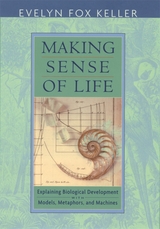
What do biologists want? If, unlike their counterparts in physics, biologists are generally wary of a grand, overarching theory, at what kinds of explanation do biologists aim? How will we know when we have “made sense” of life? Such questions, Evelyn Fox Keller suggests, offer no simple answers. Explanations in the biological sciences are typically provisional and partial, judged by criteria as heterogeneous as their subject matter. It is Keller’s aim in this bold and challenging book to account for this epistemological diversity—particularly in the discipline of developmental biology.
In particular, Keller asks, what counts as an “explanation” of biological development in individual organisms? Her inquiry ranges from physical and mathematical models to more familiar explanatory metaphors to the dramatic contributions of recent technological developments, especially in imaging, recombinant DNA, and computer modeling and simulations.
A history of the diverse and changing nature of biological explanation in a particularly charged field, Making Sense of Life draws our attention to the temporal, disciplinary, and cultural components of what biologists mean, and what they understand, when they propose to explain life.
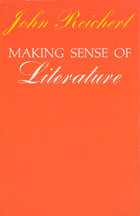
Reichert considers criticism broadly as the imparting of one's understanding of a poem or play or novel to another reader. When the rhetorical function of critical language is recognized, seemingly distinct approaches to literature can be seen as different though often compatible means to a single end. He contends that the critic's job is not to report a personal response but to describe how a reader—any reader—ought to respond to a particular work. This necessitates postulating the author's intention at every turn, so that criticism becomes an account of what the author does to the reader by means of the work.
Taking off from recent developments in the philosophy of language, Reichert proposes answers to questions such as: What is involved in the understanding of metaphor, irony, and fiction? What knowledge must the reader bring to the text to understand it? And in what ways may the meaning of the text be regarded as stable? He sets out to refute attempts by Beardsley, Peckham, Kermode, Culler, and Ellis, among others, to define the essential nature or function of literature. Finally, with a simple account of how the everyday assessments we make of people and actions apply to literary works, Reichert demonstrates that full evaluative arguments are never purely formal or "literary," but always, in a broad sense, moral.

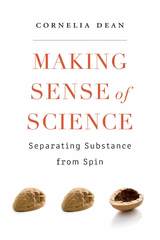
A Los Angeles Times Book Prize Finalist
Most of us learn about science from media coverage, and anyone seeking factual information on climate change, vaccine safety, genetically modified foods, or the dangers of peanut allergies has to sift through an avalanche of bogus assertions, misinformation, and carefully packaged spin. Cornelia Dean draws on thirty years of experience as a science reporter at the New York Times to expose the tricks that handicap readers with little background in science. She reveals how activists, business spokespersons, religious leaders, and talk show hosts influence the way science is reported and describes the conflicts of interest that color research. At a time when facts are under daily assault, Making Sense of Science seeks to equip nonscientists with a set of critical tools to evaluate the claims and controversies that shape our lives.
“Making Sense of Science explains how to decide who is an expert, how to understand data, what you need to do to read science and figure out whether someone is lying to you… If science leaves you with a headache trying to figure out what’s true, what it all means and who to trust, Dean’s book is a great place to start.”
—Casper Star-Tribune
“Fascinating… Its mission is to help nonscientists evaluate scientific claims, with much attention paid to studies related to health.”
—Seattle Times
“This engaging book offers non-scientists the tools to connect with and evaluate science, and for scientists it is a timely call to action for effective communication.”
—Times Higher Education

A history of the University of Cincinnati’s Service-Learning program.
The University of Cincinnati’s most distinguished and respected colleges are busy tearing down walls and breaking out of their “silos.” These colleges understand that students who cross disciplinary borders to work and train cooperatively learn more and are better prepared for employment after they leave the university. The goal of this book is to further break higher education out of its silo, proving that a university that nurtures symbiotic partnerships between students, faculty, and the greater community in which the university is rooted, is stronger for it.
This book highlights the complex evolution of the University of Cincinnati’s Service-Learning program, particularly its connection to the historic Cooperative Education movement in Cincinnati, which was founded in 1906. This action-oriented book solicits lived experiences and stories from a variety of campus and community stakeholders, which are then analyzed through the theory of structuration. Sharp’s work contributes to the development of structuration theory by detailing key watershed moments that have underscored the evolution of the University of Cincinnati’s service-learning program. This work has important implications for other service-learning programs, for the field of education leadership, and for the literature on campus-community organizing.
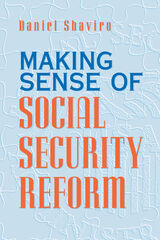
But what is the average person to make of all this? How many Americans know where the money for Social Security benefits really comes from, or who wins and loses from the system's overall operations? Few people understand the current Social Security system in even its broadest outlines. And yet Social Security reform is ranked among the most important social issues of our time.
With Making Sense of Social Security Reform, Daniel Shaviro makes an important contribution to the public understanding of the issues involved in reforming Social Security. His book clearly and straightforwardly describes the current system and the pressures that have been brought to bear upon it, before dissecting and evaluating the various reform proposals. Accessible to anyone who has an interest in the issue, Shaviro's new work is unique in offering a balanced, nonpartisan account.
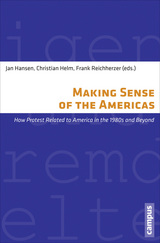
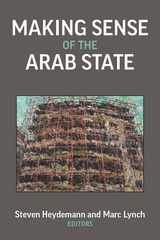
Making Sense of the Arab State brings together top scholars from diverse theoretical orientations to address some of the most critically important questions facing the region today. The authors grapple with enduring questions such as the uneven development of state capacity, the failures of developmentalism and governance, the centrality of regime security and survival concerns, the excesses of surveillance and control, and the increasing personalization of power. Making Sense of the Arab State will be a must-read for scholars of the Middle East and of comparative politics more broadly.

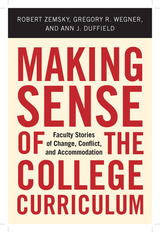
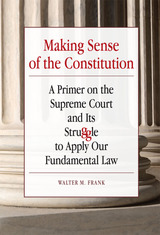
In Making Sense of the Constitution: A Primer on the Supreme Court and Its Struggle to Apply Our Fundamental Law, Walter Frank tackles in a comprehensive but lively manner subjects rarely treated in one volume.
Aiming at both the general reader and students of political science, law, or history, Frank begins with a brief discussion of the nature of constitutional law and why the Court divides so closely on many issues. He then proceeds to an analysis of the Constitution and subsequent amendments, placing them in their historical context. Next, Frank shifts to the Supreme Court and its decisions, examining, among other things, doctrinal developments, the Court’s decision making processes, how justices interact with each other, and the debate over how the Constitution should be interpreted.
The work concludes with a close analysis of Court decisions in six major areas of continuing controversy, including abortion, affirmative action, and campaign finance.
Outstanding by the University Press Books for Public and Secondary Schools
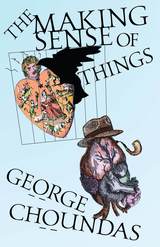
A grand tour of the edges of our lives, where glory and significance riot against the logic of living and the pall of tragedy.
The Making Sense of Things is a collection of twelve stories that pulse with memory, magic, and myth—all our favorite ways of trying to make sense of things.
Readers are treated to vivid and unforgettable characters. A fiercely independent woman puts the man who loves her to unconscionable tests, never guessing that arson, suicide, and canine obesity will yield a magical kind of happiness. A honeymooner in Venice, addled by fever and second thoughts, commits by dumb error a double murder. A brisk lawyer founders when a car wreck claims his son and ex-wife, then discovers that the desperation of grief is a kind of hope.
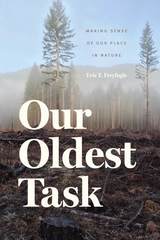
Passionate and pragmatic, extraordinarily well read and eloquent, Freyfogle details a host of forces that have produced our self-defeating ethos of human exceptionalism. It is this outlook, he argues, not a lack of scientific knowledge or inadequate technology, that is the primary cause of our ecological predicament. Seeking to comprehend both the multifaceted complexity of contemporary environmental problems and the zeitgeist as it unfolds, Freyfogle explores such diverse topics as morality, the nature of reality (and the reality of nature), animal welfare, social justice movements, and market politics. The result is a learned and inspiring rallying cry to achieve balance, a call to use our knowledge to more accurately identify the dividing line between living in and on the world and destruction. “To use nature,” Freyfogle writes, “but not to abuse it.”
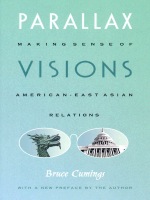
Using information based on thirty years of research, Cumings offers a new perspective on a wide range of issues that originated with the cold war—with particular focus on the possibly inappropriate collaboration between universities, foundations, and intelligence agencies. Seeking to explode the presuppositions that Americans usually bring to the understanding of our relations with East Asia, the study ranges over much of the history of the twentieth century in East Asian–American relations—Pearl Harbor, Hiroshima and Nagasaki, the Korean War, and more recent difficulties in U.S. relations with China and Japan. Cumings also rebuts U.S. media coverage of North Korea’s nuclear diplomacy in the 1990s and examines how experiences of colonialism and postcolonialism have had varying effects on economic development in each of these countries. Positing that the central defining experience of twentieth-century East Asia has been its entanglement first with British and Japanese imperialism, and then with the United States, Cumings ends with a discussion of how the situation could change over the next century as the economic and political global clout of the United States declines.
Illuminating the sometimes self-deluded ideology of cold war America, Parallax Visions will engage historians, political scientists, and students and scholars of comparative politics and social theory, as well as readers interested in questions of modernity and the role of the United States in shaping the destinies of modernizing societies in Asia.

READERS
Browse our collection.
PUBLISHERS
See BiblioVault's publisher services.
STUDENT SERVICES
Files for college accessibility offices.
UChicago Accessibility Resources
home | accessibility | search | about | contact us
BiblioVault ® 2001 - 2025
The University of Chicago Press


